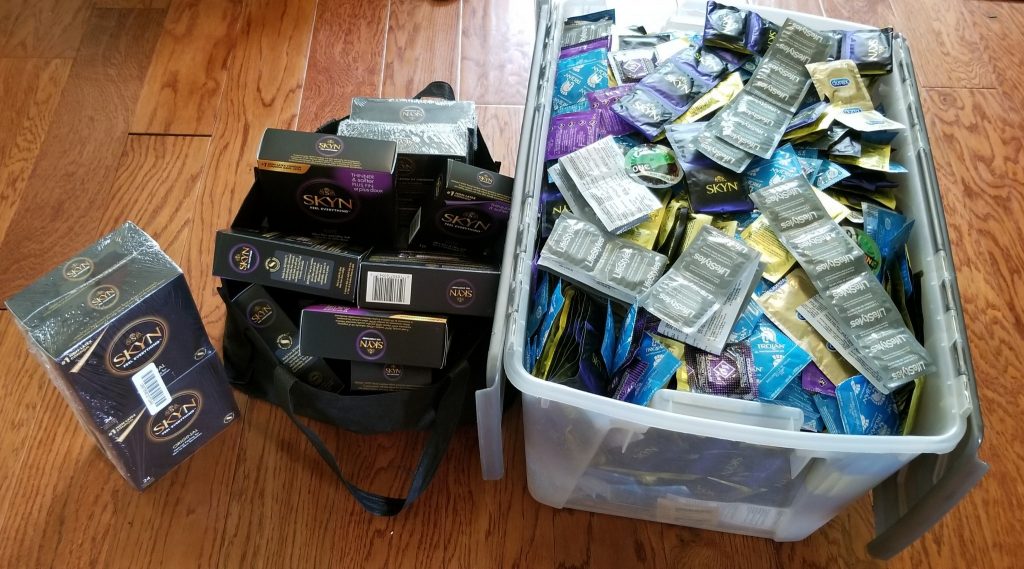After the world’s top supplier of condoms warned of a global contraceptive shortage due to a coronavirus-caused suspension in production, a reproductive health advocacy organization in Colorado has begun picking up the slack by distributing condoms to those in need.
One in five of the world’s condoms is produced by Karex Bhd, which is based in Malaysia, the southeast Asian country hit hardest thus far by the coronavirus pandemic. The company was forced to halt operations for over a week as the country went into full lockdown, putting a major dent in supply.
The company was given the green light to resume production at its three Malaysian factories on Friday, but under a government provision for essential businesses, it must operate at only half its normal capacity. That, coupled with the weeklong pause in production, has prompted the company to raise alarm to a pending condom shortage.
But not to worry.
While condom supply dwindles on the other side of the world, Cobalt, the reproductive rights advocacy organization formerly known as NARAL Pro-Choice Colorado, has a huge stockpile of condoms they typically hand out at events, and they’ve launched a program to mail them to anyone who needs a rubber, free of charge.
Cobalt also has a supply of pregnancy tests they’re willing to ship. All you have to do is fill out a form with your mailing address and how many condoms or pregnancy tests you need.

Selina Najar, Cobalt’s political director, described the effort as a tangible way for the organization to give back during the COVID-19 crisis. She said they’ve received about 25 requests so far from all across Colorado, in addition to one request from Missouri, and that they’re happy to ship out of state.
Advocates are warning that access to contraceptives is critical during the coronavirus pandemic given that an uptick in unintended pregnancies would place an additional burden on an already-burdened health care system.
“Love and intimacy are going to help us all get through this strange time, so if you are having sex, make sure you are being safe,” said Dr. Nina Ball during Cobalt’s reproductive health webinar last week. “Being responsible for your own reproductive health care, including preventing unintended pregnancy, helps relieve pressure on the rest of the health care system during this pandemic.”
Tending to one’s reproductive health needs during the COVID-19 crisis could get complicated, however, given the potential condom shortage and other factors.
For example, despite advice from health officials to stock up on prescription medications, some states and insurance companies only allow doctors to prescribe a one month supply of birth control at a time. And if you don’t have a birth control prescription already, it could now prove difficult to get an appointment to do so. What’s more, heading to a pharmacy or a doctor’s office could be considered too dangerous for those who live with elderly or immunocompromised individuals, or are immunocompromised themselves.
Unintended pregnancies are especially troublesome in states like Oklahoma, Iowa, and Mississippi, which are attempting to stop abortion clinics from operating during coronavirus lockdowns by classifying them as non-essential businesses. (Yesterday, federal judges blocked orders to suspend abortion care in Alabama, Ohio, and Texas).
There’s also the financial strain of sexual and reproductive health care at a time when many Americans are struggling to make ends meet. For those who have lost their health insurance along with their jobs, birth control might now be too expensive.
To make matters worse, the cost of condoms could increase.
Demand for condoms is growing at “double digits” as people around the world abstain from having children due to the uncertainty caused by the pandemic, said Goh Miah Kiat, chief executive officer at Karex, in an interview with Bloomberg. That, in addition to a higher cost of doing business, could cause condom prices to rise.
“We are still paying all our workers full salaries, but workers only come in half the time so generally there will be a cost increase,” he told Bloomberg.
But for now, condoms are free through Cobalt.



